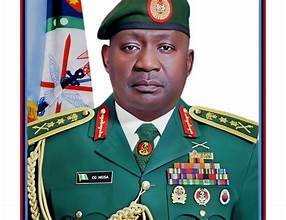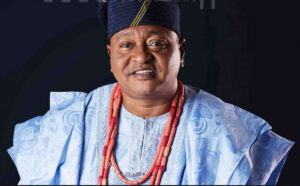Under NSIB, no mode of transport will be left behind — DG
[ad_1]
FOLLOWING the transformation of the bureau to a multimodal entity, what is being done to expand its capacity to cope?
I appreciate that question. As I always say, there are four legs to every institution; equipment, human capital, systems processes, and procedure and infrastructure. In terms of these, these are all the four we need to expand on because the mandate has been expanded. We need to get more human capital, we need to bring in people with Maritime experience, we need to bring in people with railway experience, and we need to look at what equipment we have right now. If you look at our laboratory, most big ships today are equipped with tape recorders as you have on the aeroplane. We have the capacity to download that. In terms of the flight safety laboratory, maybe we need one or two things to expand. In terms of infrastructure, we would need to get more infrastructure. Assessment is currently being done on the four legs. Again, human capital and infrastructure; need to review and regulate as well to include all that is in line with the new Act. We are in the process of transforming from AIB to NSIB. It is now the Act of the law. It has been signed by the President. The Act that gave birth to AIB has been repealed and the NSIB is the one that is current. In that way, what that means is that our scope has been expanded; we are now a multimodal agency, an agency to investigate maritime, rail, plus air accidents and we have powers to investigate any mode of transportation as well. These are all covered in the new NSIB Act 2022.
What are the strategic plans for the Bureau and the capacity to investigate all modes of transportation accidents?
As I said, there are four legs to any company whether it is a bread manufacturing company or is sales and marketing company, or whatever company you run, there would be infrastructure required, there would be human capital, there would be some forms of SOP that guide the activities of everybody and there would be equipment required. These are the four legs of any company and for any company to have an excellent operation; you must score at least 7/10 in each of these legs. You must have the right infrastructure, and the right human capital to drive the processes, you need to have the right equipment for them to work, and a well-researched SOP to guide their activities. We are now in the process of transition. A lot is going on in the background. We are currently working on a three to five years’ plan for NSIB which has to be approved by the Ministry of Aviation. This includes human capital development which requires infrastructural needs. We are currently doing a gap analysis to see the deficiency required. In terms of human capital, we need to recruit maritime experts; we need to recruit rail experts. Thank God, I think 80 percent of our investigators right now have been trained on multimodal air accidents, rail accidents, and maritime accidents at Cranfield University. This, we have been preparing for in the last few years and we made sure we put our investigators in that training at Cranfield University. It was a six weeks’ course. We definitely need some level of expertise. If you remember a few weeks ago, we signed a Memorandum of Understanding (MoU) with the Nigerian Navy; that’s part of the background work we are doing because we need the Nigerian Navy in terms of support, in terms of logistics, and in terms of training as well as some of our investigators. All that is going on. We are building on that and very soon, we will bring them to the open.
Why are many concerned about the political aspect of your job?
One thing I love about the job I do is that I don’t need to reinvent any wheel. If you look at some countries, they are already doing what we just started. When you look at the journey so far, our presentation was made to the Federal Executive Council (FEC). It was debated and it was approved by FEC to put all accident investigations under one body. Firstly, you are saving costs. Secondly, expertise stays together and makes workings much more efficient. That was the approval of the FEC at that time. This was then passed on to the National Assembly; this was debated at a public hearing. We went through a rigorous process of a second hearing, and the third hearing before it was sent to the President for approval. Of course, there was a bit of tweaking that was done at the National Assembly. At the end of the day, we got what we wanted and I really want to appreciate them for that. In the wisdom of the President, this was approved and signed into law. I don’t see much in political issues because all the stakeholders were carried along. This is about preventing needless debts. This is about ensuring that our modes are safe. Look at the result we have been able to achieve in the air transportation sector. The reason we have been able to achieve that is that we have been able to separate the investigator from the regulator and the service provider. This is the way it is in most countries of the world today. They are on three legs. You separate the regulator from the service provider and the investigator. In the air mode, what we have had since 2007 was AIB being the investigator, NCAA being the regulator and the FAAN, the airlines, Nimet, NAMA, and NCAT being the service providers. There is a clear distinction between everybody’s work. There is objectivity in what everybody is doing and that has led to the fact that we have one of the best safety records. We are not 100 percent perfect; we have one of the best safety records in the world. In the last six years, only three souls have lost their lives in air crashes in Nigeria. That is a remarkable achievement and that is what we want to push into other modes of transportation to ensure we increase that safety valve. Before this Act was passed, Nigeria Railways, here the regulator, investigator, and service provider-conflict of interest. There can never be objectivity. The body investigating railway accidents is still under the Managing Director. There is no way they were going to indict the Managing Director. This is why the government, in its wisdom, said they were going to pull this out and make it an independent agency. This is where we are and I pray that all will be well.
The bureau just released final reports of seven incidents, how do you intend to ensure that these incidents are avoided in future?
The whole essence of accident investigation is to prevent a repeat. Our bye product is called safety recommendations on what happened, why did it happen and what measures can we put in place to prevent it from happening again? That is what accident investigation is all about, that is what we do here, and that is our safety recommendations are targeted at the regulator, the Nigerian Civil Aviation Authority (NCAA), sometimes at the airlines, the manufacturer, or the engine manufacturer. Sometimes, it could be the service provider, it could be the FAAN for not doing the right thing at the right time or it is NAMA or NiMet. Toward the end of every report, you have safety recommendations which are the things that we issue. Those are our bye products. We ask them to put things in place, which will not let this happen again.
Besides the recent MoU you signed with the Navy, what are your plans for NIMASA, NPA, and Shippers council that are in the maritime sector?
In terms of collaboration, yes, we signed with the Navy. Don’t forget that NIMASA, and NPA, all are under the Ministry of Transportation. The way we are going to approach that is Ministry to Ministry and under that Ministry, we then can cascade down to each agency that we are going to be having sensitisation and a work plan, how we are going to make this work, and the kind of support that we will give one another. Other meetings are coming up as part of the plan. It is ongoing. As they come up, you will get to know more about them.
Before the upgrade of the agency from AIB to NSIB, the former AIB used to get three percent of Ticket Sales Charge (TSC) from the NCAA;shouldn’t there be an upgrade in the financing of the Bureau and what is the total staff strength of NSIB and how many investigators would you actually require for the job ahead?
On the finances, I can assure you a lot of work went into the drafting of the Act and it is approved today and signed into law by the President, NSIB gets six percent not three percent anymore from the TSC. The NSIB would be getting five percent from FAAN or any terminal operator that charges passenger service charges. Five percent of that comes to NSIB. There is a percentage of railways tickets sold in Nigeria that will come to NSIB, there is some percentage of money paid by the ships that comes into NIMASA that will be coming to NSIB. We found a way to balance it so that no mode is left behind. On the finances, as long as we can drive all these proposals approved in the Act, I think finances should be okay. As you know that we are one agency of government under the UN Charter we are not allowed to charge for our services. You don’t charge for investigation. You don’t invoice anybody. That is why we have to be properly funded so that we can do our job properly. Regarding the staff strength, currently, we are 220 staff in AIB/NSIB and our plan is definitely to recruit expertise that is more technical. Some of our investigators; we have about 45 investigators. Three-quarters of them have actually been trained in a multimodal investigation. That means that they have been trained in air, maritime investigation, road, and rail investigation at Cranfield University. That was multimodal accident investigation training. We have put them through that already but of course, for us to investigate the maritime accident; we need some expertise that understands maritime operations and the business. The same goes for rail. These are parts of the discussions and meetings that we are going to be having on how can we synergise and work together and how we can get some of their staff onboard NSIB. The same thing goes for NIMASA, NPA and what kind of support and synergy we are going to get from them.
[ad_2]














Post Comment